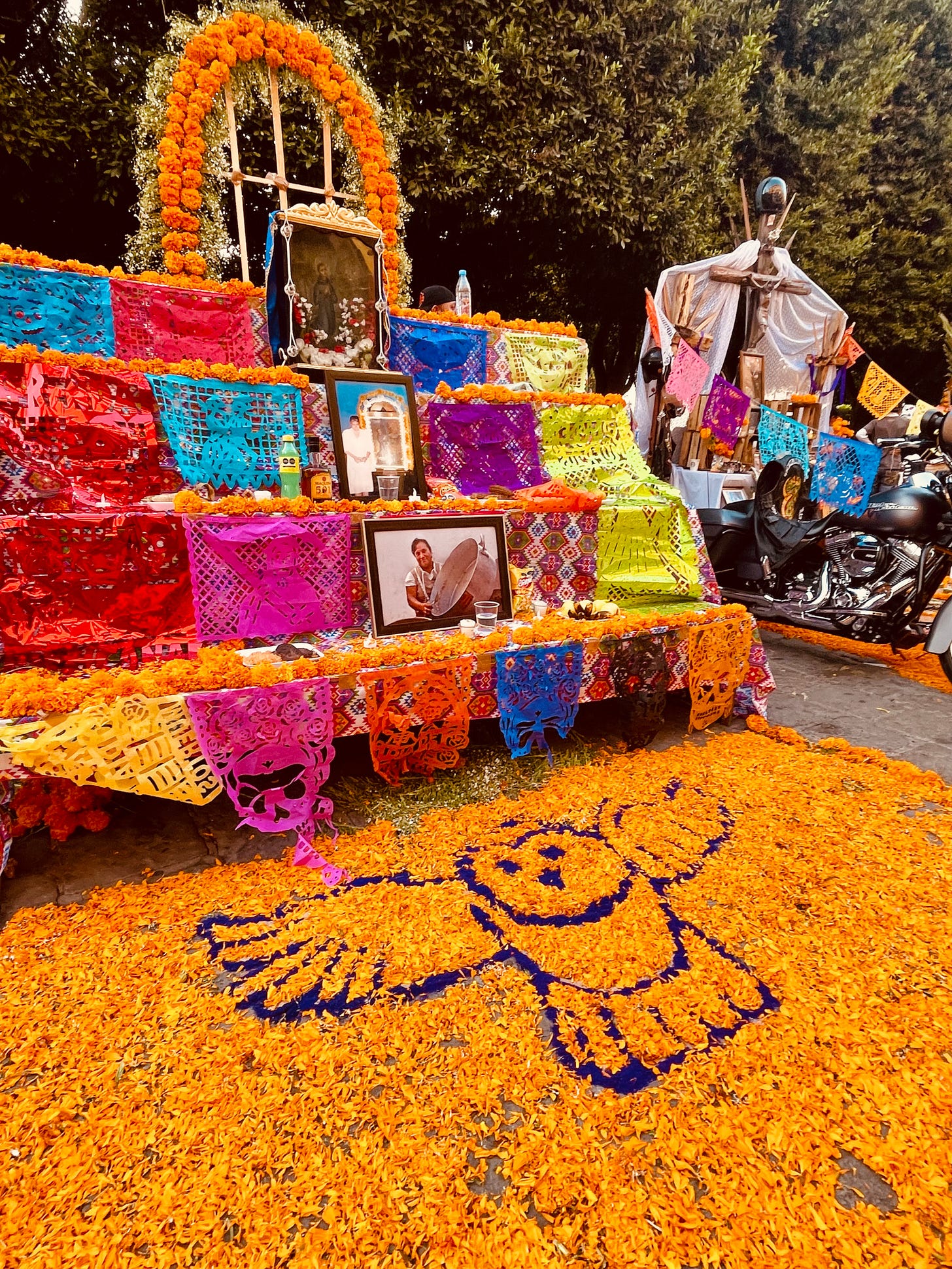On the threshold
From The Mexpatriate archive
Welcome to a Sunday edition of The Mexpatriate.
I published this short essay in October 2022, but somehow it seems particularly relevant in this moment.
On the threshold of knowing whether the U.S. goes “brat” or “weird,” with voters on both sides threatening to leave the country if their candidate loses, I am reminded of an earlier wave of expatriates, the ones I met in my early years here in San Miguel de Allende. Some of them said they moved in protest of the election of George W. Bush. And like many who leave their homelands, they found not only solace, but a fervent devotion to their newly adopted countries.
There is freedom in living in a place you know little, a place that delights more than it disappoints you. But if home is where all your attempts to escape cease, as Naguib Mahfouz said, can it also be where you and everything around you is unfamiliar? Can you shed your origins, or do they forever define you?
These are questions not only for days of political contention and consequence, but for days of remembrance. Here we celebrate and remember the dead, receiving them as visitors from an unknown land—a place that is home for us all, in the end.
Thoughts on paradox (originally published on Oct. 17, 2022)
paradox: a seemingly absurd or self-contradictory statement or proposition that when investigated or explained may prove to be well founded or true
Mexico is a great teacher of paradox: contrasting beauty and ugliness, violence and serenity, decadence and destitution. Hence, Mexico is a teacher of life. When I prod my own motivations for writing about current events in Mexico—if I dig under my solar plexus to ask why, somehow this is the answer: yes, and…
Yes, Mexico is heaven and also hell. Yes, Mexico laughs at the present and is scarred by the past.
Citizens who come from a superpower state—even those who say they’ve emphatically disowned it—can develop a habit of gazing upon the surrounding world of 194 countries and viewing them as a judge might in a pageant. Ranking them by their attractive landscapes, amusing cultural oddities and human rights records; picking favorites. In fact, there is a defensiveness of the places abroad that Americans may choose to call home, a desire to believe that they have found the promised land, the next frontier, and to explain to their eyebrow-raising compatriots that yes, Mexico or Thailand or Croatia is actually an amazing place! It has to be if I’m living here, right?
While I can empathize with the joy of discovery that precipitates the “expatriotism,” it is worth remembering that patriotism, in any form, isn’t known for nuance. Maybe this is because we humans generally lean towards either/or, true/false, which makes the mental exercise of “holding paradox”—the non-binary notion that the good does co-exist with the bad, even in the same moment—so uncomfortable. But this in-between space is inhabited by great art; the space where we catch fractal glimpses of truth.
But we’re in the post-truth age, are we not? Living through the quintessential modern paradox: unimaginably broad access to information that generates more confusion than it does understanding. We fall back on our beliefs, wherever we sense we can land softly.
The Mexican outlook is often described as “fatalistic,” an inheritance from the Catholic and pre-Hispanic cosmogonies that place the power of the individual beneath not just the power of deities, but also the power of the community. But there is a socio-economic reason too for this narrower view of free will.
Privilege could be described as a cascade of choice; an accumulation of advantages that allows individuals to bend fortune in their direction. To be empowered to make choices—from the everyday-scale to the grand—that help us feel more in control of our fates. The paradox to hold onto here is that with greater freedom, comes greater (perceived) responsibility for those choices.
In a Zoom-enabled world, the old framework for deciding where to live is fading. If you are no longer limited to one city, or even one country, but can venture anywhere in the shrinking world where you can connect to the internet, choosing well (and justifying your reasons), can become its own burden. “Nothing is more unbearable, once one has it, than freedom,” in the words of James Baldwin.
Released from the tethers of generations before us, we are set adrift and paradoxically, many of us feel the desire to be rooted again, even as we are also restless. We crave community as we further isolate ourselves from a sense of place.
I feel the weight of both accident and purpose in living here, or fate and free will. I didn’t choose Mexico, but my grandparents did, and then my mother chose to return. I choose to stay, but sometimes I wonder how much of that choice is an illusion; I do feel bound to this place in ways I struggle to put into words.
A writer’s paradox.





Outstanding, wonderful perception! “…a writer’s paradox…” So insightful and so true. Kind of like we’ve got to keep running to know where to begin.